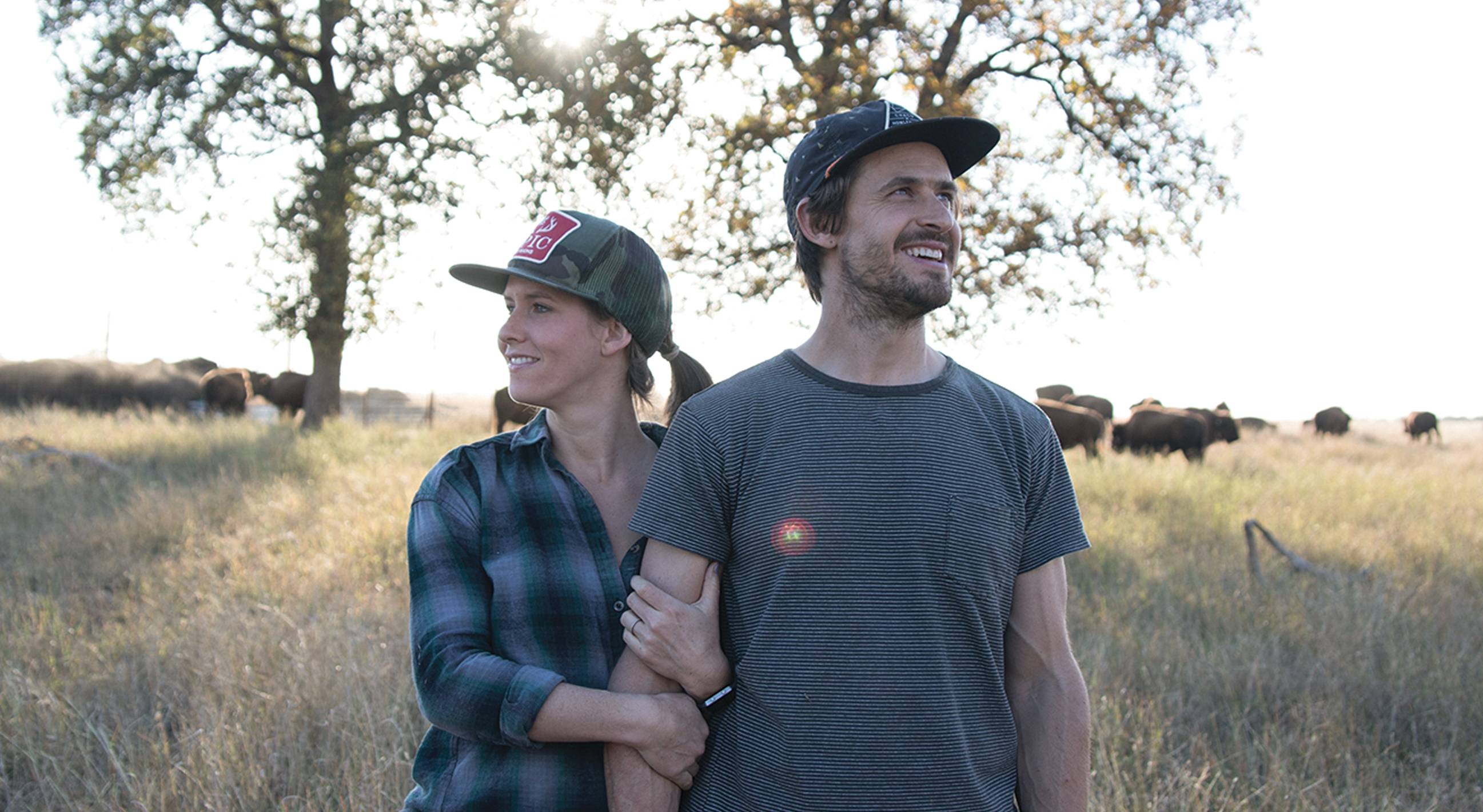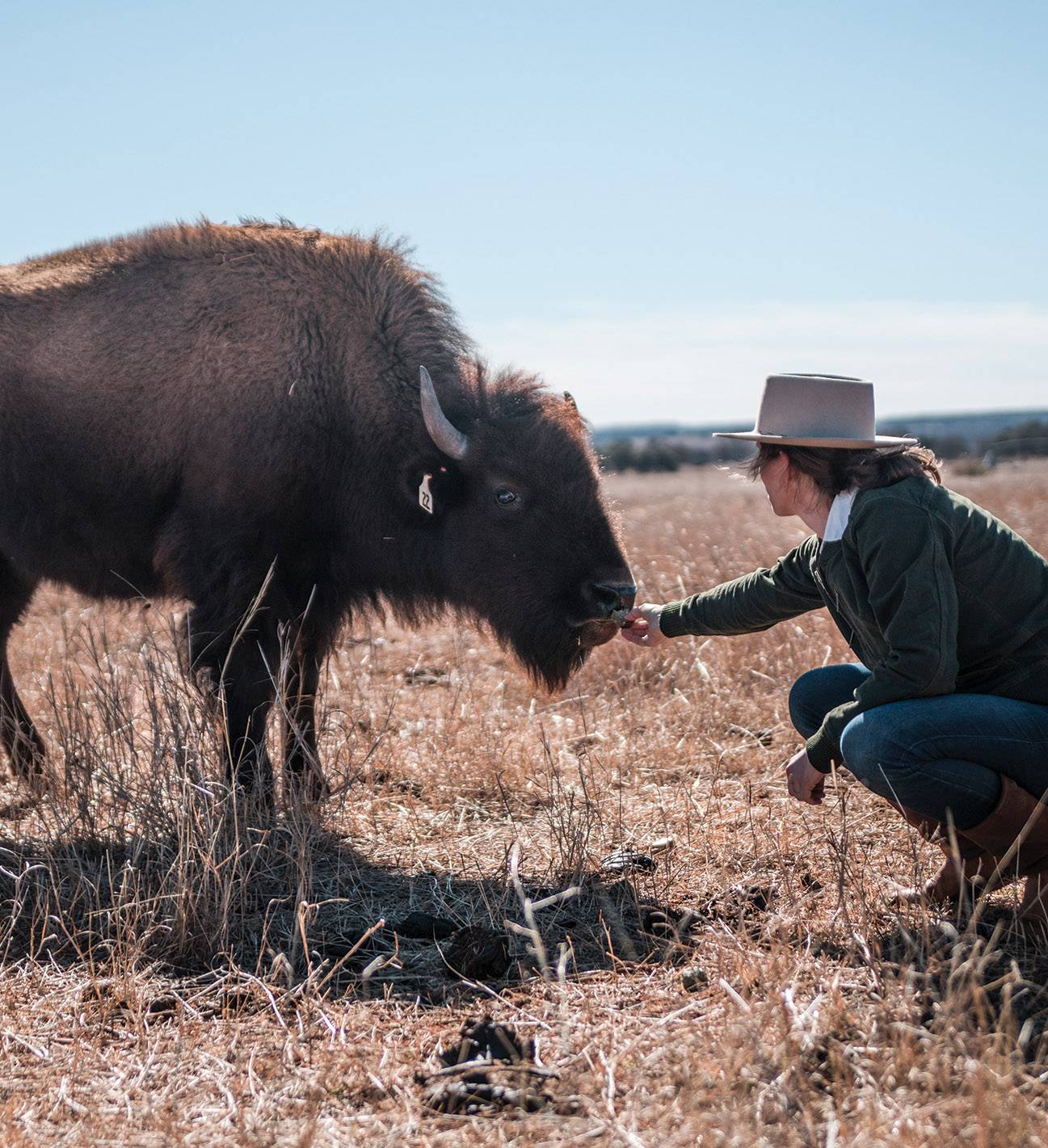
From Picking up Recyclables to Multimillion Dollar Business
By Tom Kertscher
For Taylor Collins and Katie Forrest, finding work-life balance is Epic
You know it’s true love — and, in this case, the start of a multimillion-dollar business partnership — when your girlfriend volunteers to go with you to work, and that job is picking up broken glass and rancid beverage containers.
It was just three months into the relationship of Texas State University students Taylor Collins (B.E.S.S. ’05, M.S. ’08) and Katie Forrest (B.A. ’07). Collins earned a bachelor’s degree in health and human performance and his master’s degree in physical therapy. Forrest earned her bachelor’s degree in psychology with a minor in sociology.
“When we started dating at Texas State, we loved spending every single second together. We did all these fun recreational things together outside all the time, and then we’d go our separate ways and we’d work,” recalls Collins. Both Bobcats are triathletes and bicycle racers. “So, we were like, ‘Hey, let’s work together. We like hanging out. Let’s start a business or do something together more entrepreneurial, where we could be in charge of our own schedule.’ ”
Forrest suggested that she could tag along on Collins’ job. “Taylor had been picking up the recycling at a café for a couple of years and that was his only job. We wanted to spend more time together.”
They started doing recycling runs together, and it wasn’t long before Forrest asked why they didn’t have more customers. The customer base increased, and the business grew.
Collins remembers the perils of working that summer. “The milk jugs would ferment, and they were like grenades. If you touched them wrong, it launched the bottle cap in your face and shot rotten milk all over your body. It was not romantic at all, but it was like, ‘OK, if we can do that together, we can do anything together.’ ”

In 2013, the now-married couple launched Austin-based Epic Provisions. They created, as the company puts it, “The world’s first 100% grass-fed meat, fruit, and nut bar.” The meat bars have names such as Beef Habanero Cherry, Bison Bacon Cranberry, Lamb Currant Mint. Epic was so successful that by 2016 it was purchased by General Mills for an estimated $100 million.
Following the sale, the couple’s dream of owning a ranch came true with the purchase of Roam, a 450-acre Hill Country spread. On their blog, Collins writes, “We are treating Roam as our Epic laboratory.” He explains that they hope to “regenerate the land and create a net positive impact that exceeds our local community.”
Collins says the work-life balance the couple learned at Texas State has helped them succeed in business. “Katie and I thrived academically. We had a lot of discipline. We learned to study and work hard. We also had this part of our lives being in San Marcos that we learned about wildlife and we learned about exercise and being outdoors,” he says.
“We took these two things that were really important to our lives and that was the foundation for everything we’ve done with business. It’s not forgetting the things that inspire us, but then having the discipline to build something and execute in a professional way.”
Forrest says it has been especially gratifying to parlay their love of nature into changing business practices of an entity as large as General Mills. The focus now is not only on sustainability but also on regenerative agriculture, which, as Modern Farmer describes it, “focuses on healthy, mineral-rich, biologically diverse soils that grow healthy, mineral-rich food while also improving soils, crops, and the livelihoods of the farmers.” The couple’s influence has, for example, helped General Mills search for more biodiverse ways to grow oats for their billion-dollar Nature Valley brand of products, Forrest says.
“The way we are growing our food is industrialized, commoditized, centralized — so, we’re extracting resources, trying to maximize profitability,” Collins says. “We’re essentially taking all of the minerals, vitamins, biology from the soil, depleting it and we’re going to have a problem growing food in the future. It doesn’t make sense, and so we’re trying to convey this idea that you can actually rebuild, restore, and heal land.”
Even though the sale of Epic was a huge financial gain, Forrest says the money hasn’t dampened their desire to continue to innovate and make a difference. “I think the work that we do is important. It matters. It’s changing things — and yeah, it kind of rocks that we always said that we would feel like we made it when we can go to the grocery store and not worry about buying nice food. It’s really important to us that we can buy high-quality food.”
In November, Collins and Forrest were honored with a Young Alumni Rising Star Award from the Texas State Alumni Association. Collins says he and Forrest, both of whom continue to work with General Mills, want to continue to make a difference by leading the change in agriculture.
“When we sold Epic, we didn’t know if we would be the people who just peace out and live on a ranch and never talk to humans ever again. I think we recognize we love the spirit of being an entrepreneur, and we think that we have the skill set still, and the passion to create a lot of meaningful change in the world,” Collins adds. ✪